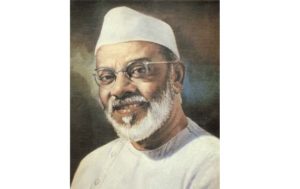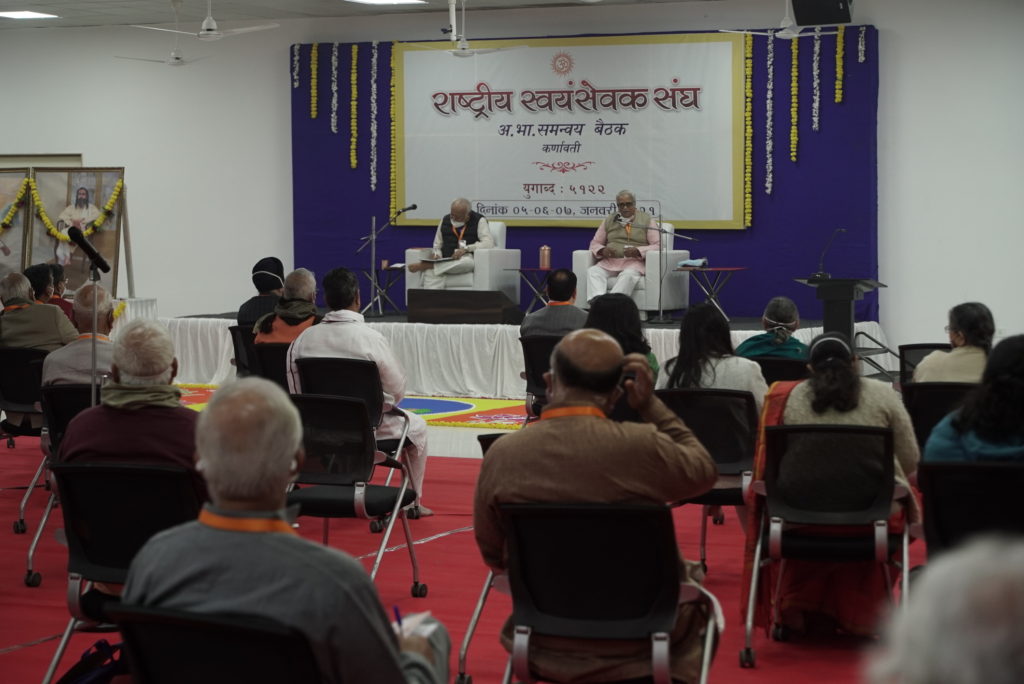
‘Sustainable development’ is a word most widely used nowadays, starting from UN’s ‘Sustainable Development Goals’. But in 1940’s itself, JC Kumarappa (JCK) the great Tamilnadu born Gandhian economist coined the better phrase ‘Economy of Permanence’.
JCK (1892-1960) was educated abroad, and possibly the first Chartered Accountant cum MBA of India. While practicing as a CA in Mumbai, he wrote a brilliant article in late 1920’s on how the British were manipulating the rupee-pound exchange rate and cleverly draining India’s resources. This attracted Gandhiji’s attention, who invited him to meet him. JCK, who had not seen Gandhiji before (photos were rare those days) went in full suit and tie to Sabarmati Ashram and reached before appointed time. He saw a ‘gardener’ working near the gate and told him that he had to meet Mr Gandhi. At the appointed time, the gardener introduced himself as Gandhiji!
This incident totally transformed JCK. He left his practice, and gave his entire life for freedom struggle and village uplift and never married. His brother Bharathan Kumarappa also dedicated his life for nationalist causes. He explained and elaborated Gandhiji’s economic philosophy (considered by many as outdated) in the modern economist’s language. He changed his name Joseph Cornelius to his ancestral name of Kumarappa.
Gandhiji gave him one responsibility after the other. He was asked to substitute Gandhiji as Editor of Young India, when Gandhiji was in jail. He was made in charge of the All-India Village Industries Association and JCK played a pioneering role in reviving many rural industries. He was keen to apply Science and Technology to upgrade many traditional industries. He championed the revival of making palm products like neera, palm jiggery etc as an alternative for making liquor from these trees. He popularized oil ghanis and beekeeping activates, all of which give employment to millions even now. He believed in Research and Development (R&D) but relevant for the villagers.
If we read his writings, we see his approach relevant even now. He stressed the importance of cattle wealth and need to upgrade quality of our animal stock. He emphasized on soil testing for each agricultural farm, which only recently Government is giving importance. His comprehensive economic survey of Matar Taluka in Gujarat is a classic study who helps us to understand rural economy in pre independence India.
One thing that comes out clearly in JCK’s writings is that pre-British rural India was prosperous because there was a huge population in our villages and small towns engaged in non-agricultural occupations like weaving, oil pressing, building construction, cloth making, pottery etc. The destruction of village industries led to increased pressure of population on agriculture leading to our poverty.
After Independence, JCK became a member of the First Planning Commission which prepared our first Five Year Plan. This plan was the best plan we had in concept and implementation. JCK visited many countries like Japan, China in early 1950’s as part of delegations. His Japan report – showing how Japanese were reviving their economy post their second world war report, is worth reading even today. When States were formed on language basis in 1950’s, he said ideally States should be formed based on river valleys. (There would have been no Cauvery water dispute then!) Though a pious Christian, he dared to say that the organized Church is the fourth wing of European military – after army, navy and air force.
JCK was an idealist and of non-compromising nature. Hence he did not accept many offices and positions which came his way in 1950’s. He retired to Kallupatti Ashram near Madurai in 1950’s and passed away in 1960.
Anyone sincerely trying to find a solution to huge unemployment problem of India can quickly identify with JCK. His ideas are very practical even today. Just as an example, one organization called SELCO (Bangalore) has revived the dying blacksmith profession by providing them solar power. There is no reason why our oil ghanis cannot be revived by policy giving street corner jobs to millions besides fresh cold pressed oil for families. In future with climate change around the corner and environmental concerns will take centre stage, people will find JCK’s vision very relevant.
(‘ written by V Girirajan, IAS ( Retd.) with deep passion in Gandhian Economics and decades of experience in rural development ‘)

